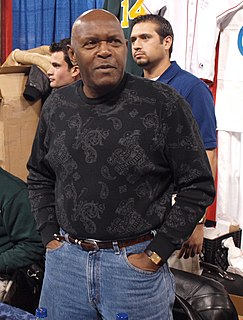A Quote by Curtis Sittenfeld
We all stood and gathered our backpacks and I looked at the floor around my chair to make sure I hadn’t dropped anything. I was terrified of unwittingly leaving behind a scrap of paper on which were written all my private desires and humiliations. The fact that no such scrap of paper existed, that I did not even keep a diary or write letters except bland, earnest, falsely cheerful ones to my family (We lost to St. Francis in soccer, but I think we’ll win our game this Saturday; we are working on self-portraits in art class, and the hardest part for me is the nose) never decreased my fear.
Quote Topics
Anything
Around
Art
Art Class
Behind
Bland
Chair
Cheerful
Class
Desires
Diary
Did
Dropped
Earnest
Even
Except
Existed
Fact
Family
Fear
Floor
Francis
Game
Hardest
Hardest Part
Keep
Leaving
Letters
Looked
Lost
Make
Me
My Family
Never
Nose
Our
Paper
Part
Portraits
Private
Saturday
Scrap
Self
Soccer
Stood
Sure
Terrified
Think
Were
Which
Win
Working
Write
Written
Related Quotes
I don’t keep a travel diary. I did keep a travel diary once and it was a big mistake. All I remember of that trip is what I bothered to write down. Everything else slipped away, as though my mind felt jilted by my reliance on pen and paper. For exactly the same reason I don’t travel with a camera. My holiday becomes the snapshots and anything I forget to record is lost.
I don't feel I write fast. I write in longhand and do so much revision. On the page, it's so old-fashioned. I could write a whole novel on scrap paper, scribbles and things. I keep looking at it and something develops. For me, using a word processor would mean staring at a screen for too many hours.
She's afraid to tell me anything important, knowing I'll only turn around and write about it. In my mind, I'm like a friendly junkman, building things from the little pieces of scrap I find here and there, but my family's started to see things differently. Their personal lives are the so-called pieces of scrap I so casually pick up, and they're sick of it. More and more often their stories begin with the line "You have to swear you'll never repeat this." I always promise, but it's generally understood that my word means nothing.
What I've always wished I'd invented was paper underwear, even knowing that the idea never took off when they did come out with it. I still think it's a good idea, and I don't know why people resist it when they've accepted paper napkins and paper plates and paper curtains and paper towels-it would make more sense not to have to wash out underwear than not to have to wash out towels.
[Bernard Leach] was an incredible draftsman, and at the end of breakfast time, for instance, he would push his plate back, and he'd pull an old scrap of paper out of his pocket and a little stub of a pencil, and he'd begin to make small drawings, about an inch and a half, two inches tall, of pots that he wanted to make. And they were beautiful drawings. I really wish I'd stolen some of those scraps of paper, because those drawings were exquisite explorations of his ideas of form and volume in a ceramic piece.
make it a practice to avoid hating anyone. If someone's been guilty of despicable actions, especially toward me, I try to forget him. I used to follow a practice - somewhat contrived, I admit - to write the man's name on a piece of scrap paper, drop it into the lowest drawer of my desk, and say to myself: "That finishes the incident, and so far as I'm concerned, that fellow." The drawer became over the years a sort of private wastebasket for crumbled-up spite and discarded personalities.
When I was eight, my mum found me humming to myself and scribbling on a scrap of paper. When she asked me what I was doing, I got shy. I was writing a Christmas song, and I had never shared my music with anyone before. Reluctantly, I sang it for her... and she loved it. Of course she did - she's my mum.





































